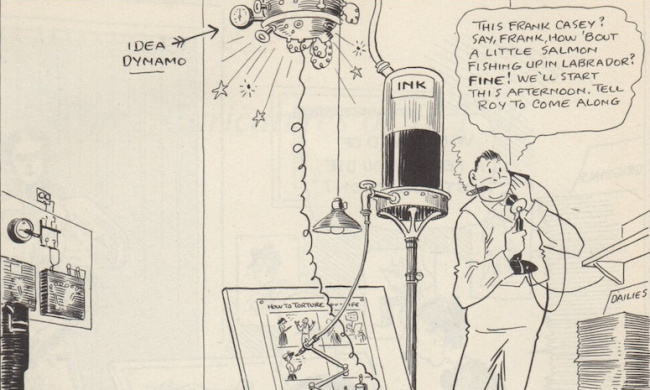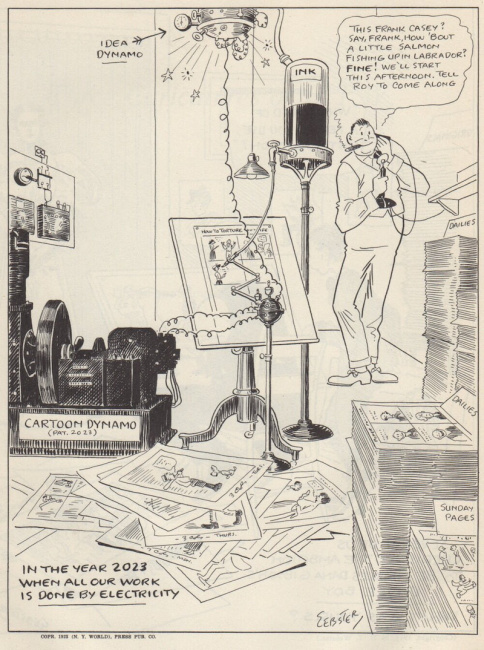A list of over 4,000 artists whose work was used to train artificial intelligence (AI) products has been making the rounds of social media since Jon Lam, a storyboard artist at Riot Games, Tweeted screenshots of conversations with Midjourney CEO David Holz on the Midjourney Discord server. The conversations included a link to the list of artists, whose names, Holz said, came from “wikipedia and magic the gathering” [sic]. Midjourney users can use the artists’ names as prompts to create work in their styles.
Comics artists whose names appear on the list include John Romita Jr. (but not Sr.), Bernie Wrightson, Jack Kirby, Steve Ditko, Carl Barks, Bill Watterson, Ernie Bushmiller, Rube Goldberg, James Kochalka, Kate Beaton, Frank Miller, Dave McKean, Robert Crumb, Fiona Staples, Alex Toth, Molly Ostertag, Raina Telgemeier, Seth, Roz Chast, and Sarah Andersen, who is one of the plaintiffs in the lawsuit. Manga artists include Masashi Kishimoto (Naruto), Hiro Mashima (Fairy Tail), Eiichiro Oda (One Piece), Naoko Takeuchi (Sailor Moon), Akira Toriyama (Dragon Ball), and Natsuki Takaya (Fruits Basket).
While the list includes creators of classic, underground, and contemporary indie comics, as well as newspaper strips and manga, it omits a number of prominent artists including Dav Pilkey, Greg Capullo, Werther Dell’Erdera, and Peach Momoko. Black artists appear to be under-represented: Although Kyle Baker, Brumsic Brandon, and Barbara Brandon-Croft are on the list, there is no mention of John Jennings, Brian Stelfreeze, Ronald Wimberly, Afua Richardson, or Dwayne McDuffie, to name a few.
Magic: The Gathering artists include Reid Southen, Melissa Benson, Richard Kane Ferguson, Ron Spencer, Susan Van Camp, Rob Alexander, and Donato Giancola, as well as MTG designer Melissa De Tora. In the screenshotted conversations, Holz said he had rendered “huge swaths of MTG cards as test sequences" (see “Wizards of the Coast Rethinks Its AI Artwork Policy for ‘Magic: The Gathering’”).
The list is currently cached on the Internet Archive’s Wayback Machine and is also publicly available as an exhibit to a class-action lawsuit filed by several artists against Midjourney, Stability AI, and DeviantArt, in January 2023 (see “Can Legal Action Derail the AI Art Juggernaut”). That lawsuit alleges that Stable Diffusion, which is used by the three applications, was trained on the LAION-5B dataset, a collection of billions of images that were taken from the internet and included the artists’ work, and that the work was used without the artists’ consent and without compensation.
The battle is going on outside the courtroom as well: A group of researchers at the University of Chicago have put together a product called Glaze that interferes with AI scrapers and can be used by artists to protect their work.

Midjourney and Other AI Trained to Imitate Their Art
Posted by Brigid Alverson on January 8, 2024 @ 1:03 pm CT



